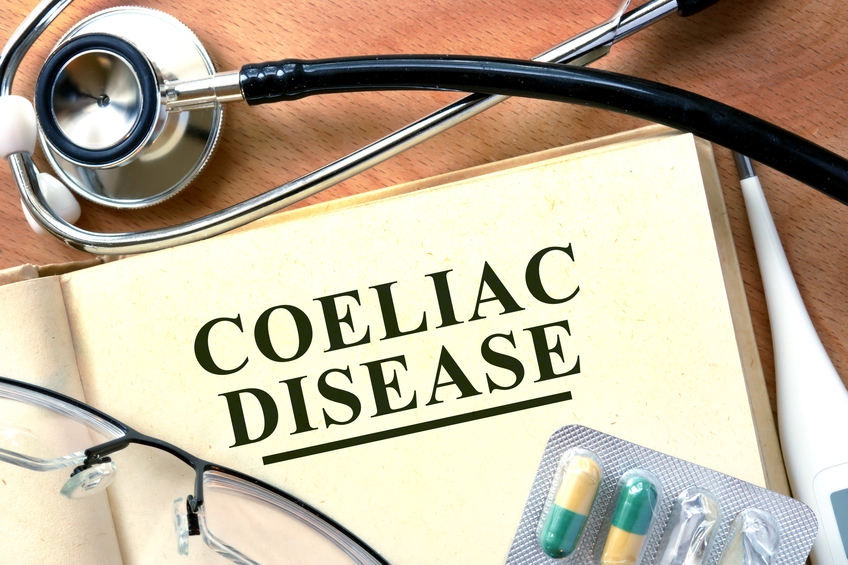Gastroenterologist Professor David Sanders and Schär dietitian Katie Kennedy share their advice on how to go about getting diagnosed if you suspect you may have coeliac disease or gluten intolerance; plus tips on how to lead a gluten free lifestyle.

1. What are the symptoms?
Professor David Sanders explains: “Symptoms including, bloating, vomiting, headaches, skin rashes, aching joints and fatigue can be associated with gluten related disorders like coeliac disease or having gluten intolerance. If you experience any of these symptoms, make sure you speak to your GP who will be able to advise you and help with the next step: diagnosis.”
2. How will I be diagnosed?
“Diagnosing coeliac disease can be difficult because some symptoms are similar to those also associated with other conditions, such as irritable bowel syndrome,” says Professor David Sanders. “However, if you have any symptoms, you should discuss your concerns with your GP who may carry out a blood test to check for coeliac disease. If gluten intolerance is suspected, and once coeliac disease has been excluded, an elimination diet is likely to be recommended. It is important to continue on a gluten-containing diet through the diagnosis process.”
3. Make sure you get the right advice
Dietitian Katie Kennedy says: “There is a lot of advice and support out there for individuals who suspect they may have coeliac disease or gluten intolerance. Charities like Coeliac UK offer extensive information via their website and local volunteer-led support groups. In addition, Schär offers advice via its website and careline.”
4. What treatment is available for coeliac disease?
“The only treatment is to follow a strict gluten free diet, which means avoiding all foods that contain gluten,” explains Professor David Sanders. “For most people, following this diet will reduce or alleviate symptoms, heal existing intestinal damage, and help to prevent associated complications. It is also important to note that this diet is a lifetime requirement and continuing to eat gluten, no matter how small an amount, can damage the intestine.”
5. Going gluten free?
Dietitian Katie Kennedy says: “Make sure you do your research! There’s no reason why a gluten free diet can’t be easy and healthy. Make sure you eat meals based on gluten free starchy foods (including potatoes, rice, gluten free breads and pasta) and also include a range of low fat protein- rich foods such as lean meat, fish, poultry, eggs and pulses, and of course aim to eat your 5 portions of fruit and veg a day.”
6. Make sure you read labels carefully
Dietitian Katie Kennedy explains: “The presence of gluten containing cereals (wheat, rye, oats and barley) must now be clearly labelled on food products, so it’s easy to see what is gluten free. Allergens, including gluten-containing cereals, will always be highlighted within the ingredients list, but make sure you check food products carefully before eating.”
7. Will going gluten free give me a nutrient deficiency?
Dietitian Katie Kennedy says: “If you are following a gluten free diet, you may eat less of some key nutrients, such as calcium and fibre, so it’s important to top up on these where possible. Sustain your calcium intake with semi/skimmed milk, low fat yoghurts, cheese, and green leafy veg and make sure you also include lots of high fibre, gluten free breads and pastas in your diet, and maintain a healthy fruit and veg intake.”
8. Be aware of cross contamination
“There is always the possibility of cross contamination. Even a tiny bit of gluten can be enough to cause symptoms for someone with coeliac disease,” dietitian Katie Kennedy says. “To minimise the risk of cross contamination you could: wash down kitchen surfaces before use, have different butters, spread and jams to minimise the spread of crumbs and also invest in some toaster bags to keep your gluten free bread separate. There is also a range of gluten free foods available to help those needing to follow a gluten free diet.”
9. Experiment with adapting recipes and try new foods
“If you are stuck for inspiration, Schär has a huge range of delicious gluten free foods on offer which make it easier to lead a gluten free lifestyle. Visit Schar.co.uk for gluten free recipes, expert advice and ideas to liven up your meals.”
10. Enjoy eating out!
As well as raising awareness of coeliac disease, this year, the theme of coeliac awareness week is focussed on the great ‘Gluten Freevolution’. Coeliac UK is campaigning for better availability of gluten free foods whether eating out or grabbing something quick to eat on the go. Dietitian Katie Kennedy says: “Don’t be worried about eating out; there are now lots of restaurants that cater for those leading a gluten free diet, each offering a variety of meal options. Check out Schär’s GlutenFreeRoads app for a list of gluten free venues worldwide, searchable by postcode or geographic area, so you can eat gluten free wherever you go!”

